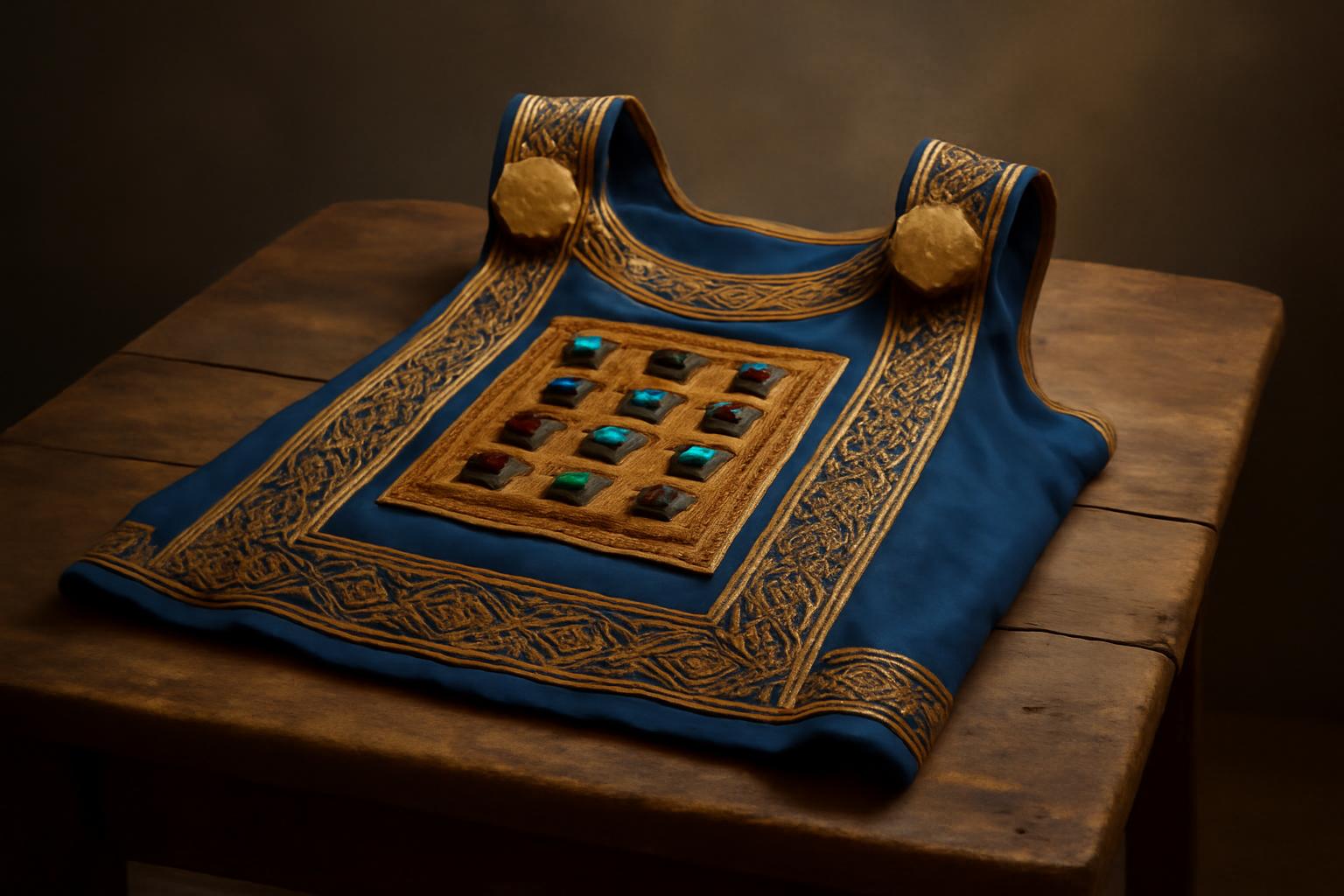
A Boy In Linen Ephod
This week I have been unable to move past 1 Samuel 2:12-26. The passage gripped me from the start with its blunt honesty: “The sons of Eli were scoundrels.” The words are jarring, almost offensive in their clarity. Here were men entrusted with the priestly office, men who bore the title of God’s representatives, yet their corruption dragged the sacred into the mud. The priesthood was at its lowest point. Worship was tainted, trust was shattered, and people found it difficult to even believe that God was near, let alone that He cared.
And yet—right in the middle of this hopelessness, there was a flicker of light. Hardly noticed, easily overlooked, but there nonetheless. A boy. Just a boy, clothed in a linen ephod, ministering before the Lord. The ephod was no ordinary garment. In Israel’s worship, the ephod signified priestly service, the set-apart calling of one who ministered before God. It was a sacred vestment usually reserved for priests, a visible sign of consecration. So when Scripture pauses to note that the boy Samuel wore a linen ephod, it was not a random detail. It was normally reserved for those who had been set apart, trained, and ordained into priestly office. And yet here was a child, not yet fully aware of the weight of his calling, clothed in the attire of one dedicated to God’s work. It was a prophetic sign. In a time when the priesthood was corrupted and mocked by Eli’s sons, God was quietly clothing a boy in the garments of holiness. Each year, Hannah would bring him a new robe to wear with that ephod (1 Samuel 2:19), as though she were prophetically declaring with every stitch: “This child belongs to the Lord. The failures of men will not cancel the purposes of God.”
Samuel’s ephod was more than fabric—it was a statement. It was the visible reminder that God’s work is never stopped by human corruption, and that in the midst of collapse, God is already preparing a new vessel unto honor. We have become skilled at magnifying the failures around us. We define our reality by the worst headlines, the darkest scandals, the loudest scoundrels. But God is never limited by human corruption. He is not blind to the small acts of obedience that no one else sees. Where we see only brokenness, God sees the seed of something new.
Think of Hannah. Year after year she came to God’s house, undeterred. She clothed her son in priestly garments long before he bore the title of priest. She prayed when others had given up. She trained her child for something that looked abandoned and forgotten. That is what prayer does—it grounds us, it aligns us with what God is doing, and it gives us courage to step out and invest in a difference even when the world calls it foolish. Samuel did not fully understand the weight of his ministry. He didn’t know strategies, he didn’t hold a position of influence, and yet he ministered. That was enough. God can use anyone—child or adult, known or hidden—but the soil of that calling must be prayer. Prayer does not leave us passive. It presses us into action. It shapes how we live, how we persevere, how we respond when everything around us seems to crumble.
Jesus once told His disciples, “I am sending you out as sheep among wolves.” That’s what it feels like, doesn’t it? We are surrounded by faithless voices and corrupt examples. And yet, like Samuel, we are called to minister anyway. Not flinching, not retreating, not waiting until things look better. Simply ministering before the Lord, steady and faithful. Because God notices. And when God notices, that small seed of faith becomes the very light that shifts history. Jesus compared faith to a mustard seed—so small it can rest unnoticed on the tip of a finger, yet so powerful it can move mountains (Matthew 17:20). That’s what Samuel’s linen ephod represented: a child’s unnoticed faithfulness, nurtured by a praying mother, planted in soil that seemed barren. God saw that seed. And as it took root, it grew into a prophetic ministry that would change the direction of a nation.
In the same way, the smallest acts of faithfulness—your prayer whispered in secret, your steady obedience when no one else notices, your persistence in consecration when the world has given up—carry the power of a mustard seed. What gives that seed its mountain-moving power is not our strength, but the power of God working through faith, rooted in His love. It is His love at work in us that turns weakness into witness, that transforms small acts of obedience into light for others. And it is that same love which brings about the shift in history, as it moves through our faithfulness in sharing the gospel and declaring His Word—just as we see in the lives of the Apostles throughout the book of Acts.
Reflection:
- When you look at the corruption, failure, or hopelessness around you, do you tend to magnify the darkness or look for the small flickers of God’s light?
- Samuel wore the ephod as a prophetic sign of his consecration. What are the “garments of consecration” God is calling you to wear in your daily life?
- Hannah’s persistence in prayer shaped Samuel’s destiny. How persistent is your prayer life in shaping what seems abandoned or forgotten?
- In what ways can you minister faithfully even when you don’t fully understand the weight of what God is doing through you?
- How might God be calling you to plant mustard-seed faith, trusting that His love working through you can shift history by sharing the gospel with others?
Daily Readings
- Monday: Matthew 17: 14-20
- Tuesday: Luke 10: 1-24
- Wednesday: 1 Samuel 4
- Thursday: 1 Samuel 5
- Friday: 1 Samuel 6
- Saturday: 1 Samuel 7
loading...